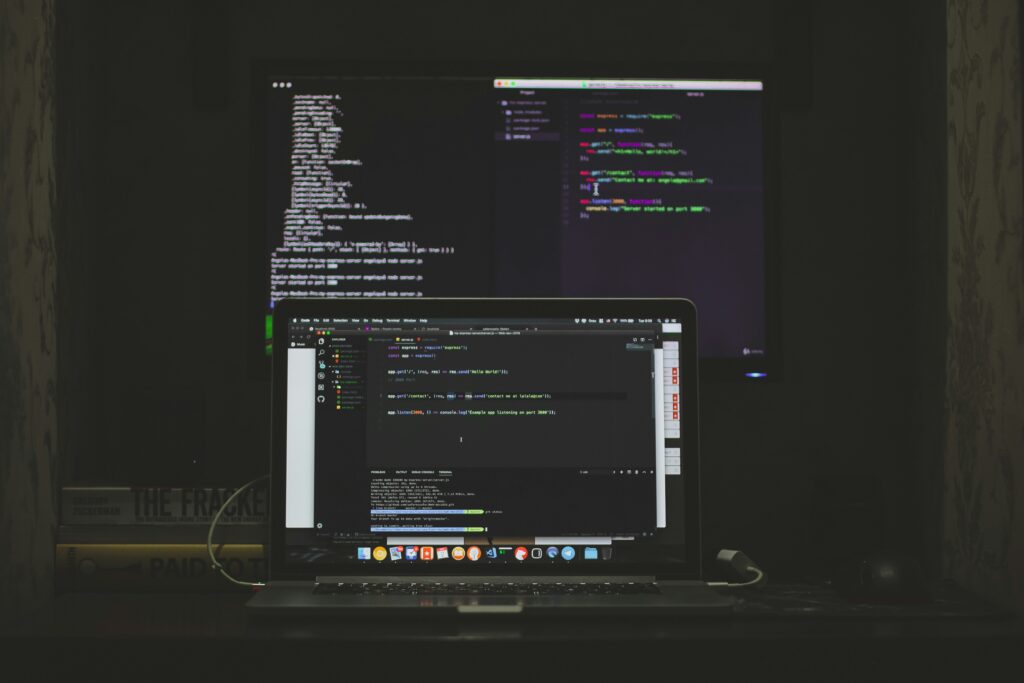Python is a very popular language that is perfect for both novice and experienced programmers because of its ease of use, flexibility, and large library. Whether your goal is to work as a data scientist, automation specialist, or software developer, learning Python may greatly advance your professional chances. This is a thorough tutorial on how to become a proficient Python developer.
1. Recognizing the Fundamentals of Python
1.1. Installation and Setup
Installing Python is the first step. Get the most recent version of Python by going to the official website. Pay attention to the installation guidelines tailored to your operating system. Make sure Python is added to your system’s PATH after installation.
1.2. Learning Syntax
Start with the fundamentals of syntax in Python. Have a rudimentary understanding of working with variables, writing simple programs, and using data types such as text, integers, and floating. Pay attention to:
- Variables for indentation and types of data
- Operators: Logical, Comparison, and Arithmetic
- Operations for Input and Output
1.3. Control Structures
Study up on control structures, such as:
- Statements with conditions: if, elif, and else
- Loops: while and for
List comprehensions and generator - expressions comprise comprehensions.
1.4. Functions and Modules
Functions are reusable blocks of code. Understand how to:
- Use def to define functions.
- Return values and pass parameters.
- Utilize pre-built functionality and develop your own
Code is organized with the aid of modules. Discover how to:
- Import common modules, such as OS and math.
- Build and import customized modules

2. Advanced Python Concepts
2.1. Data Structures
Learn about the built-in data structures in Python:
- Lists: Modifiable, ordered collections
- Tuples: Immutable, ordered collections
- Dictionary: An arbitrary set of key-value pairs
- Sets: Random groups with distinct components
2.2. File Handling
Acquire proficiency in manipulating files to read and write information. Important roles consist of :
open(),read(),write(), andclose()- Working with different file modes (
r,w,a, etc.) - Using context managers (
withstatement)
2.3. Error Handling
Handling exceptions is essential to building reliable programs. Recognize :
try,except,finally, andelseblocks- Creating custom exceptions
2.4. Object-Oriented Programming (OOP)
OOP concepts are supported by Python. Find out more about:
- Classes and Objects
- Inheritance and Polymorphism
- Encapsulation and Abstraction
- Special methods (
__init__,__str__,__repr__, etc.)
3. Making Use of Python Libraries
Python’s capability is extended by its large standard library and third-party packages. Learn about the libraries that are necessary for a variety of tasks :
3.1. Data Science and Analysis
- NumPy: A tool for manipulating numbers
- Pandas: For analyzing and manipulating data
- Seaborn and Matplotlib: for visualizing data
- SciPy: For computers in science
3.2. Web Development
- Flask and Django: For creating web applications
- Requests: For making HTTP requests
- Beautiful Soup: For web scraping
3.3. Machine Learning and AI
- Scikit-learn: For methods related to machine learning
- For deep learning, PyTorch and TensorFlow
Neural network - software, Keras
3.4. Automation and Scripting
- Selenium: For automating websites
For automating GUIs, use PyAutoGUI. - Paramiko: For automating remote servers and SSH

4. Composing Clear and Effective Code
4.1. Code Readability
Write comprehensible and lucid code by :
- Using the style guide for PEP 8 (Python Enhancement Proposal)
- Using function and variable names that make sense
- Including docstrings and comments
4.2. Refactoring
Enhance the current code by :
- Eliminating redundant information
- Making complicated structures simpler
- Dividing big operations into smaller ones
4.3. Performance Optimization
Enhance the efficiency of your code by :
- Making use of effective data structures
- Steer clear of pointless calculations
- using timeit and cProfile to benchmark and profile code
4.4. Testing
Code reliability is ensured by testing. Find out about :
- Using the unittest module for unit testing
- Using frameworks such as PyTest for Test Automation and Integration Testing
LInk For Vs Code Editor
5. Practical Initiatives
Constructing actual projects is the most effective approach to reinforce your understanding and acquire hands-on practice. Here are some suggestions for projects :
5.1. Web Applications
- Blogging Platform: Establish a blog on which readers may post content, leave comments, and follow.
- E-commerce Website: Create an online store that integrates payments, has a shopping cart, and product listings.
5.2. Data Analysis
- Sales Data Analysis: To find patterns and insights, analyze and visualize sales data.
Stock Market - Prediction: Using machine learning algorithms, forecast future prices based on previous stock data.
5.3. Automation Tools
- Create a tool called a web scraper to extract data from websites and store it in an organized manner.
- Task Scheduler: Write a script to handle recurring duties, such as email alerts or file backups.
5.4. Machine Learning
- Create a model to categorize photos into several categories using the image classifier.
- Chatbot: Construct a chatbot with AI that can converse with users.

6. Continuous Learning and Community Engagement
6.1. Online Courses and Tutorials
Enhance your skills by taking online courses from platforms like :
- Coursera
- edX
- Udacity
- Udemy
6.2. Books and Documentation
Go through literature and government records to gain a deeper understanding :
- Al Sweigart’s “Automate the Boring Stuff with Python”
- Author Eric Matthes’ “Python Crash Course”
- Luciano Ramalho, “Fluent Python” Official Python Documentation
7. Soft Skills and Professionalism
Being a professional coder is not just about technical skills; soft skills and professionalism are equally important.
- Communication: To effectively communicate your ideas and work with others in your team, hone your communication abilities.
- Problem-Solving: Practice solving coding puzzles on websites like LeetCode, HackerRank, and Codewars to improve your problem-solving abilities.
- Time management: Develop effective time management skills, particularly while handling several projects or meeting deadlines.
- Ethics and Responsibility: When coding, follow moral guidelines and consider the effects of your work, particularly when working with sensitive data or developing software that has an influence on people’s lives.
Continuous Learning and Improvement
Following Trends
The tech industry is changing quickly. Participate in groups like Reddit’s r/learnpython, join forums like Stack Overflow, and read blogs on Python. To keep up with Python’s most recent developments and trends, attend conferences and webinars.
Advanced Programs and Accreditation
Think about earning certificates and enrolling in additional courses. Specialized Python courses are available on platforms like as Coursera, edX, and Udacity, which may enhance your expertise and improve your credentials.
Conclusion
Gaining expertise in Python coding is a journey that calls for commitment, ongoing education, and active participation in the programming community. You may become proficient and thrive in your coding by learning the fundamentals, delving deeply into Python libraries, comprehending complex ideas, and refining your problem-solving and soft skills.


Leave a Reply